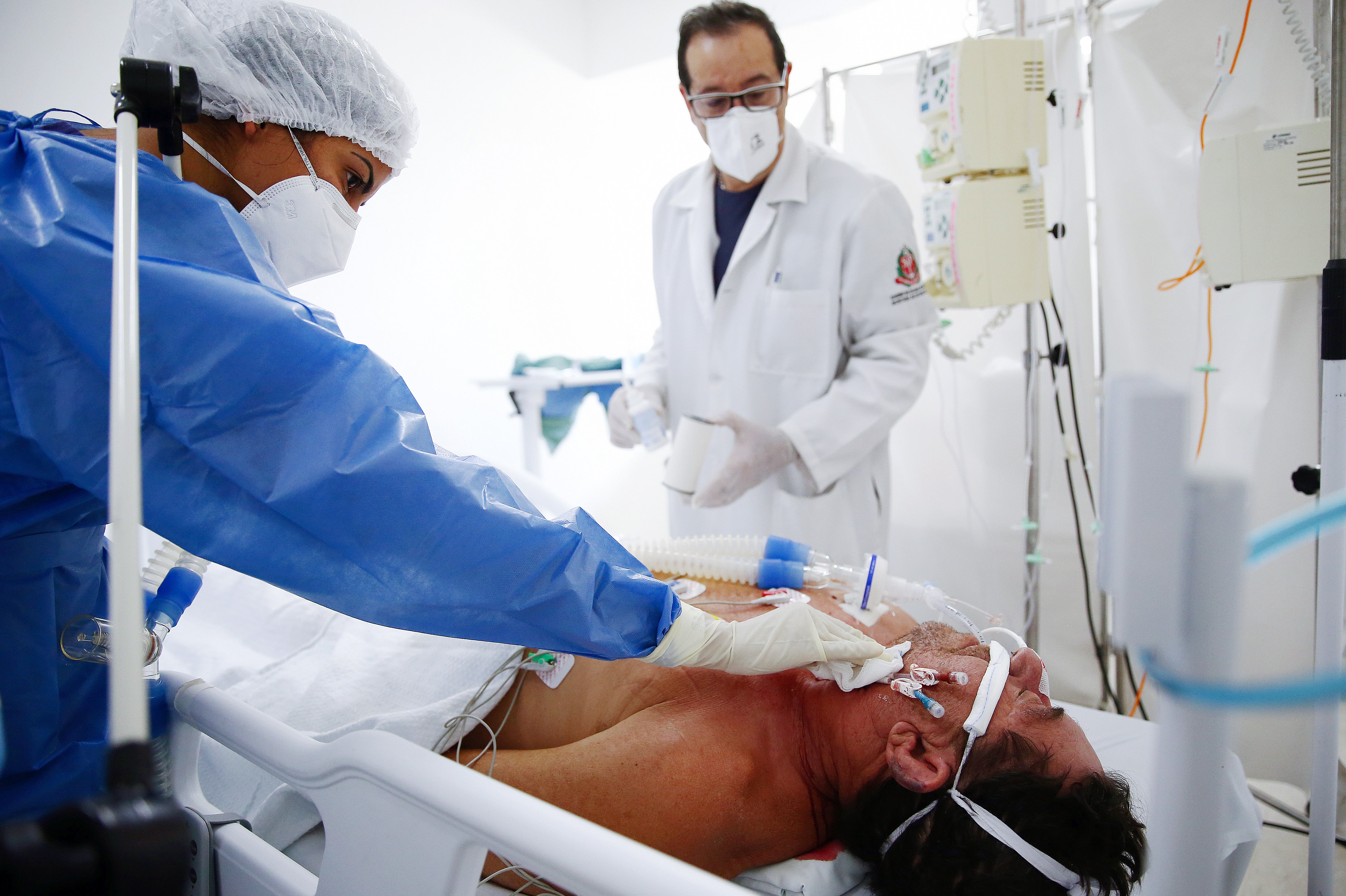Covid may lead to emergence of ‘superfungus’ in Brazil, say scientists
Mortality among patients with C auris infection in blood can reach as high as 60 per cent, study says

Your support helps us to tell the story
From reproductive rights to climate change to Big Tech, The Independent is on the ground when the story is developing. Whether it's investigating the financials of Elon Musk's pro-Trump PAC or producing our latest documentary, 'The A Word', which shines a light on the American women fighting for reproductive rights, we know how important it is to parse out the facts from the messaging.
At such a critical moment in US history, we need reporters on the ground. Your donation allows us to keep sending journalists to speak to both sides of the story.
The Independent is trusted by Americans across the entire political spectrum. And unlike many other quality news outlets, we choose not to lock Americans out of our reporting and analysis with paywalls. We believe quality journalism should be available to everyone, paid for by those who can afford it.
Your support makes all the difference.Overcrowded hospitals, exhausted health care workers, and other factors are creating “ideal conditions” for the emergence of a “superfungus” with the ability to resist drug treatment, warn scientists.
The first two cases of infection with the fungus Candida auris in Covid patients, described in the Journal of Fungi, was reported in a hospital in Salvador in the state of Bahia, Brazil.
“Nine other C auris patients have since been diagnosed at the same hospital, some colonised [with the fungus in their organism but not doing harm] and others infected,” study co-author Arnaldo Colombo from the Federal University of Sao Paulo said in a statement.
While no other cases have been reported in Brazil since, the researchers say there are grounds for concern.
“We’re monitoring the evolutionary characteristics ofC auris isolates from patients at the hospital in Salvador, and we’ve already found samples with reduced sensitivity to fluconazole and echinocandins,” Mr Colombo said.
The latter, the scientists say, belong to the main class of drugs used to treat invasive candidiasis.
In some cases, they say the fungus enters the bloodstream and causes a systemic infection known as candidemia which is similar to bacterial sepsis.
Previous studies have reported that invasion of the bloodstream and the immune system’s exacerbated response to the pathogen can cause severe damage to several organs and even lead to death with mortality among candidemia patients reaching as high as 60 per cent.
“The species quickly becomes resistant to multiple drugs and isn’t very sensitive to the disinfectants used by hospitals and clinics,” Mr Colombo said.
“As a result, it’s able to persist in hospitals, where it colonises health workers and ends up infecting patients with severe Covid and other long-stay critical patients,” he added.
Scientists say the long hospital stays, urinary and central venous catheters, and steroids and antibiotics use on Covid patients disrupt their body’s beneficial bacteria and make them “ideal targets forC auris”.
“The virus can damage the intestinal mucosa of severe Covid patients [facilitating invasion of the bloodstream by pathogens] so that the patient becomes vulnerable to candidemia,” Mr Colombo said.
While several countries have managed the emergence of the superfungus, the researchers say intensifying control of hospital-acquired infections throughout Brazil is even more urgent.
Every month since December, scientists say they have received samples of C auris isolated at the Salvador hospital for testing of its sensitivity to anti-fungal drugs.
“In these tests, we expose the cultured microorganism to progressive concentrations of anti-fungals in order to determine the lowest dose that can inactivate it,” Mr Colombo explained.
“In the case of C auris present in samples recently isolated in Salvador, for example, the dose has to be four to five times larger than the dose used to inactivate the isolate cultured in December 2020,” he added.
They found that the fungus develops structural modifications in the proteins to which the drug binds to inhibit cell wall synthesis – a process that is key to its survival.
The researchers believe surveillance efforts to detect such suspected pathogens in Covid wards should be stepped up, along with better hygiene.
Join our commenting forum
Join thought-provoking conversations, follow other Independent readers and see their replies
Comments